Barbara Taylor Bowman: Mentor Extraordinaire
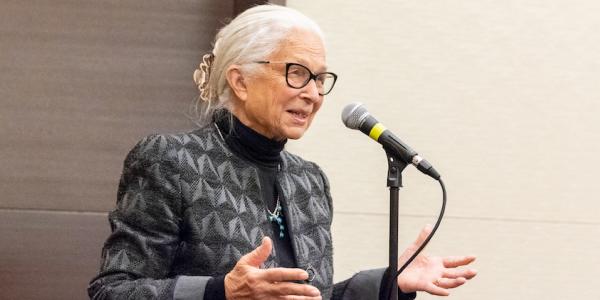
Editor’s note: A 2016 survey of early childhood educators found that 48% of educators of color lacked access to mentors. A smaller, but still significant, 37% of white educators in the survey cited this as a “top concern in their professional life.”
Mentorships are valuable and important to many early childhood professionals. Having access to good mentors is often viewed as the key to a successful career.
One of the most influential early childhood mentors of the last 50 years has been Barbara Taylor Bowman. Bowman is a co-founder and Irving B. Harris Professor of Child Development at the Erikson Institute in Chicago, a former president at NAEYC, and a pioneering early childhood expert. She is recognized as a mentor and role model to countless early childhood professionals who carry on the lessons learned from her expertise in their lives and careers.
During NAEYC’s 2018 Annual Conference in Washington, DC, early childhood leaders gathered to celebrate Bowman’s 90th birthday, including former NAEYC President, Carol Brunson Day, who delivered remarks honoring Bowman’s many professional contributions. In her remarks, she highlighted Bowman’s role as a mentor and the impact she has made in the early childhood field.
Key lessons on mentoring from Barbara Taylor-Bowman's example:
- An insistence on scholarship for educators: focusing on making sure your practice with children is informed by what we know about child learning and development
- A commitment to knowing children first hand: corroborating theory as it is informed by what you learn from working directly with children
- An approach to managing your life and work with others: characterized by style, grace, honesty, and integrity.
Read an edited version of Day’s speech below.
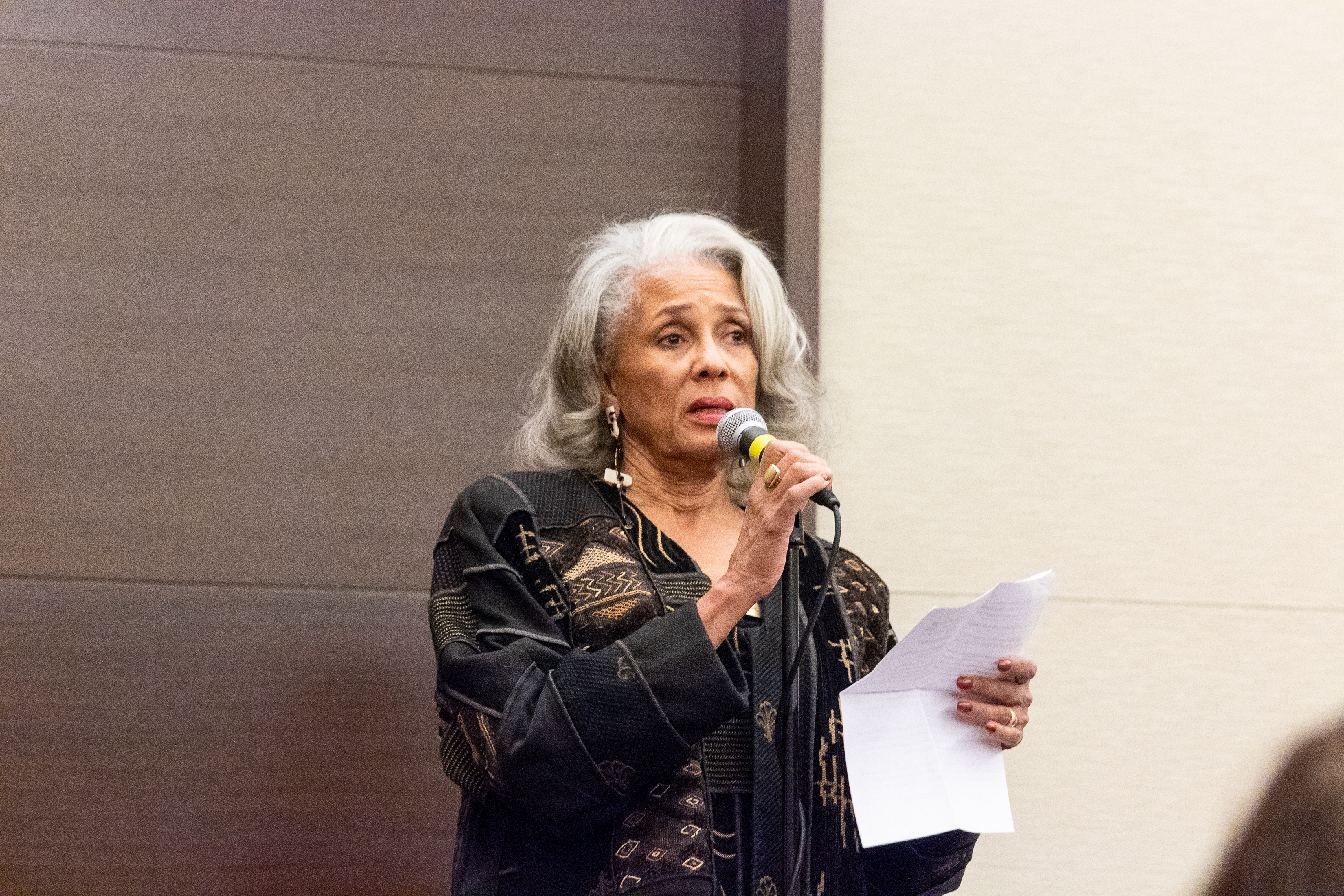
“The professional resume documenting the accomplishments of Barbara Taylor Bowman is formidable. Her service on prestigious, national and international committees and panels, her countless publications about early childhood advocacy, policy and practice, and the honors she has garnered again and again for her extraordinary contributions and service provide testament to the description of her as a “pioneer” in the field of early education.
We carry with us lessons that have influenced our careers and our lives.
What you won’t see in her resume, however, is who Barbara is as a mentor and role model, in the eyes of her thousands of students, like me, who have had the opportunity to know her personally and to learn from her close-up. We carry with us lessons that have influenced our careers and our lives.
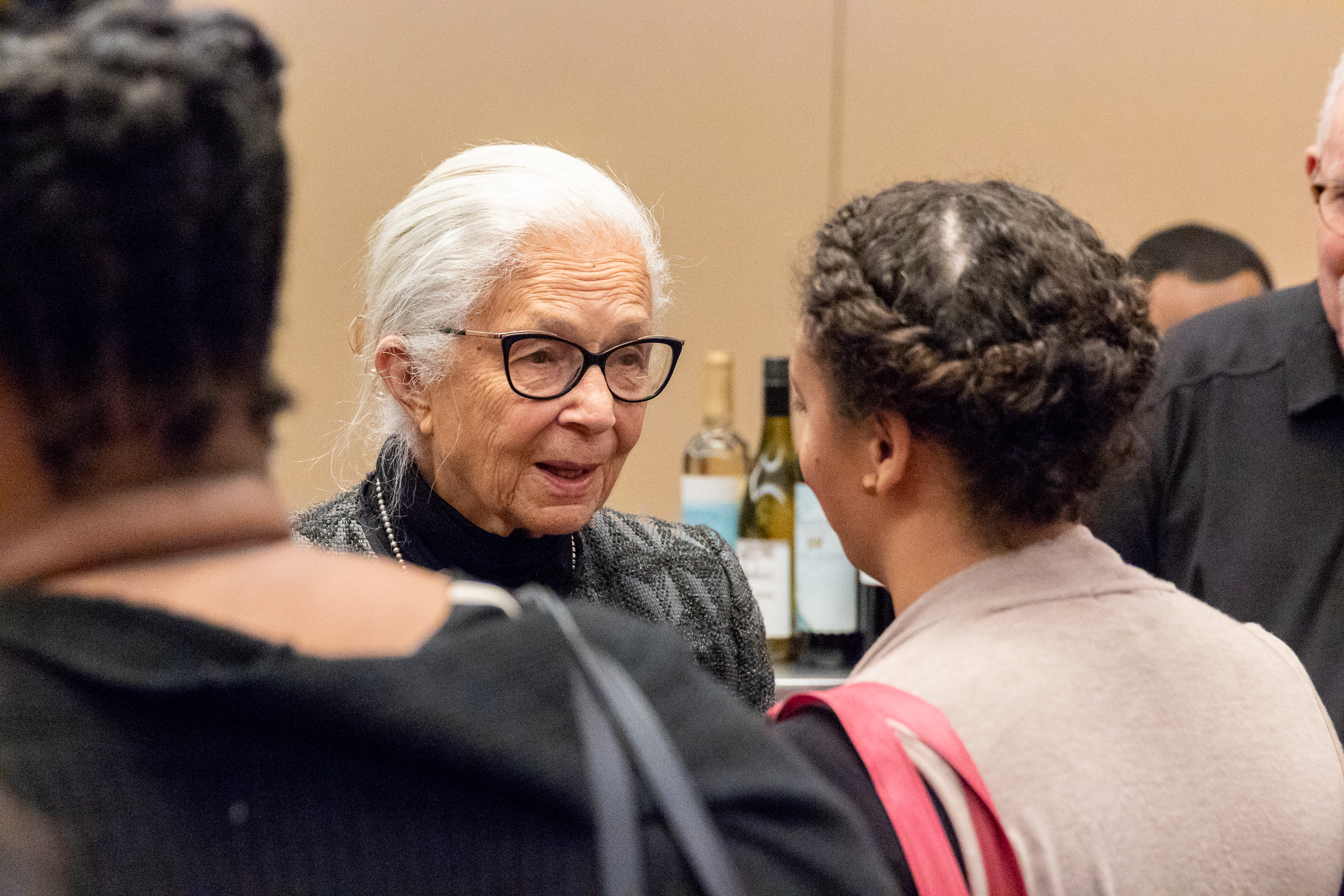
First and foremost is Barbara’s uncompromising insistence on scholarship. She holds us to the highest standards of grounding our opinion in facts. One cannot be an ECE professional just because one loves children -- one must know, understand and respect developmental theory. She demonstrated that in many ways, not the least of which was the feedback she gave on our papers, but also through her actions.
One cannot be an ECE professional just because one loves children -- one must know, understand, and respect developmental theory.
I remember when Jean Piaget came to Chicago to speak, Barbara went to the airport to pick him up—Jean Piaget, yes, that Piaget! When Erik Erikson came to speak to my class at Erikson Institute, she introduced us to him as his grandchildren.
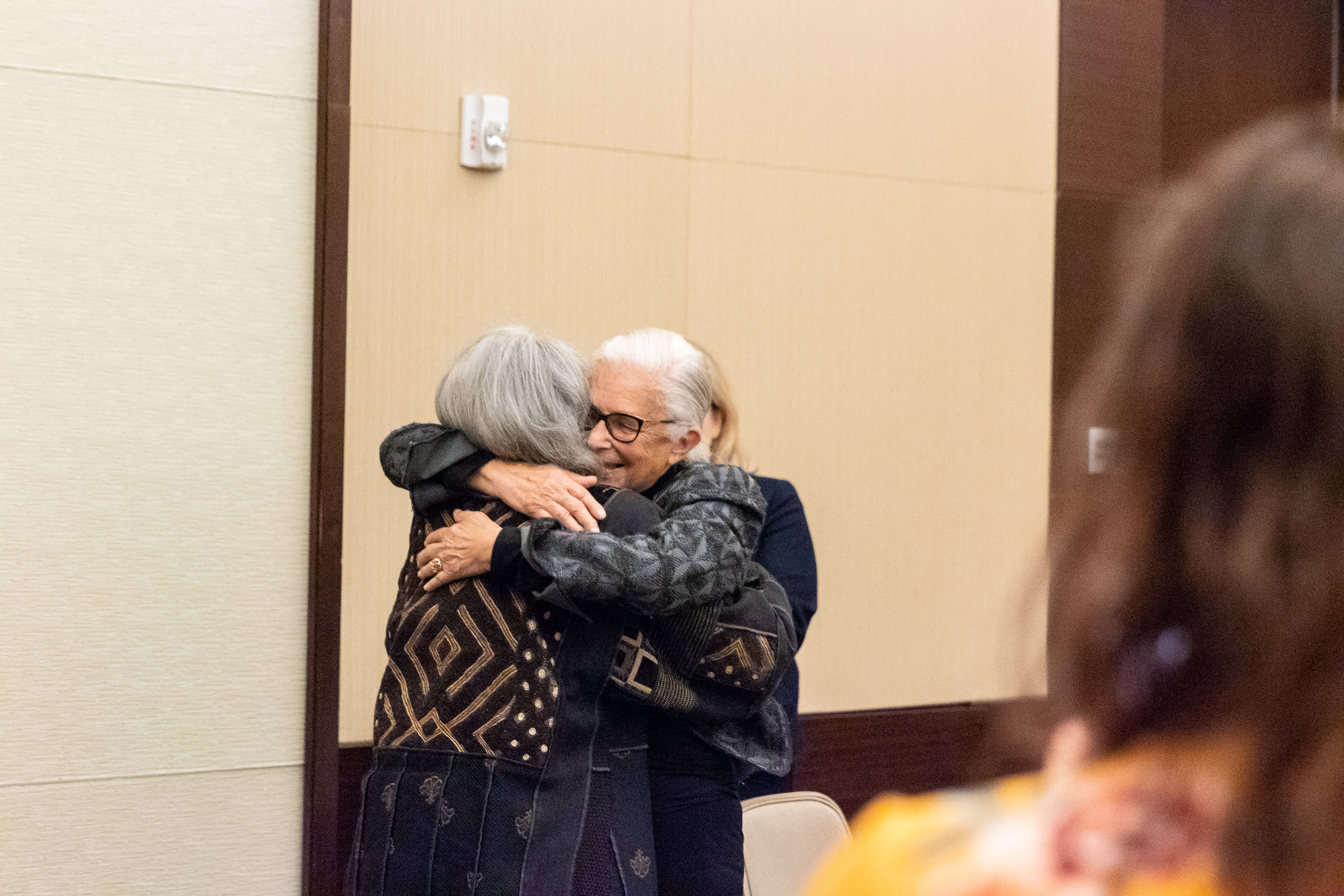
Barbara taught us to know and respect great minds and made us feel that we too could contribute great thinking to our work with children and families, by grounding it in our knowledge of developmental theory.
What’s as important as what you read or hear about children, is what you learn from your own first-hand experience.
The second trait is Barbara’s uncompromising commitment to knowing children first-hand. For her, what’s as important as what you read or hear about children, is what you learn from your own first-hand experience. In her teaching, she constantly illustrated points by telling stories about the children and families with whom she had worked. She emphasized learning from them, and from your own mistakes with them.
When I was about to graduate from Erikson, I went to Barbara for advice about what to do next, because another faculty member was encouraging me to go straight into a PhD program. Barbara said, “What’s the rush? You should spend some time working with children. You have a whole life ahead of you to get a PhD.” Barbara taught us that the basis of our credibility as educators is first-hand experience with children.
We came to know that work-life balance was important and achievable.
And finally, a mentoring lesson that I and many others of her students value and hold very dear ---how to manage your life and work with others, with style and grace, and with honesty and integrity. Although Barbara was always in the spotlight for her brilliant academic mind, she also let us see her soft side. She invited students into her home for conversations – and, in fact, for our graduation ceremonies. As Barbara taught, counseled and advised students, she would talk about her dear, dear husband Jimmy. And we heard many stories about her precious daughter Valerie, and later her precious, precious granddaughter little Laura. And in her sharing, we came to know that work-life balance was important and achievable.
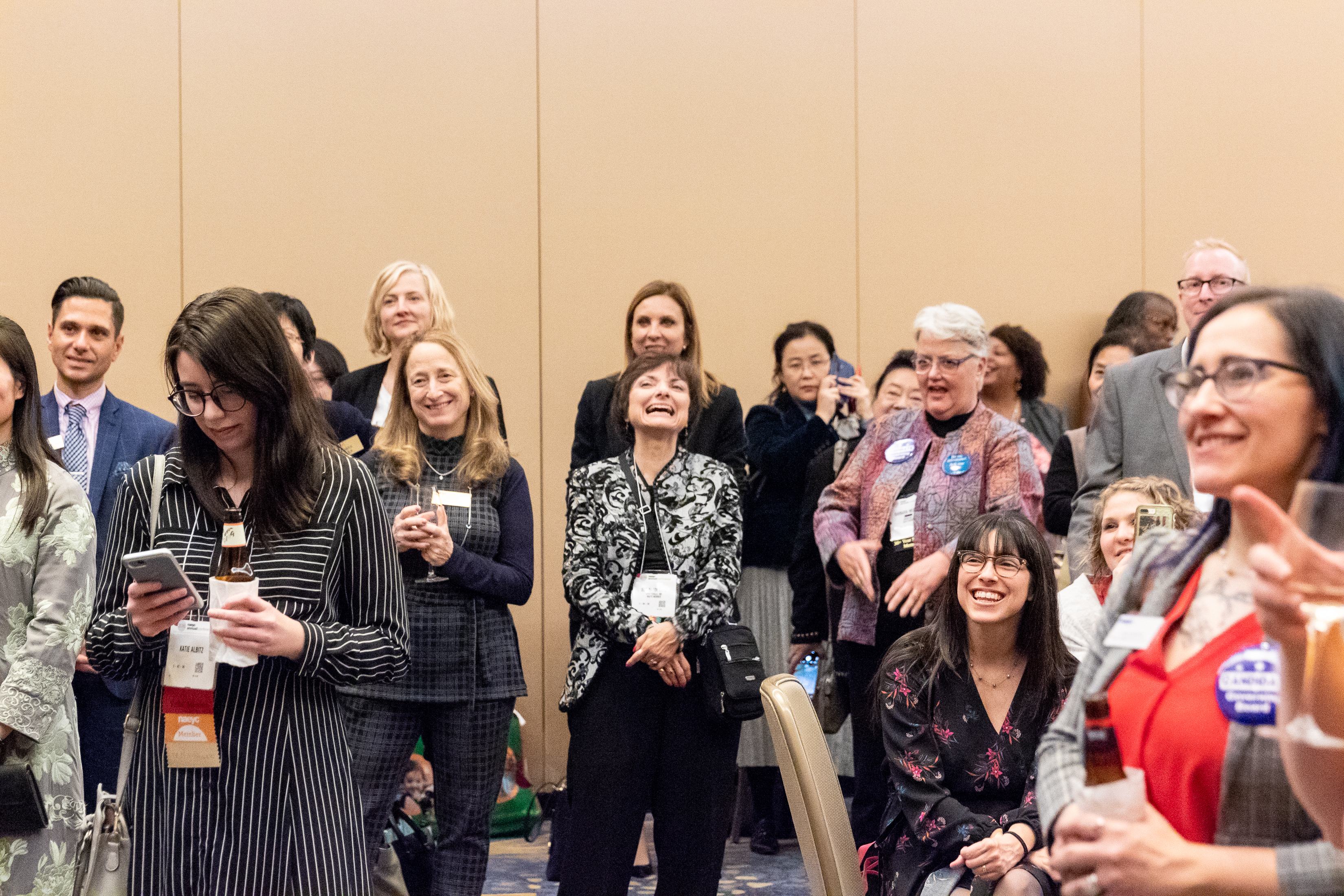
Barbara was always so supportive of students while we were struggled through the rigors of the Erikson Institute advanced study experience. And she continued her support long after we left. I personally have treasured that. I still have hanging over my desk, a congratulations letter that Barbara wrote to me on the occasion of one of my first professional accomplishments.
Even to this day I treasure that support because she’s still there for me to offer advice.
Even to this day I treasure that support because she’s still there for me to offer advice, and she gives it willingly and honestly. My most recent favorite occurred a few years ago, when she asked me if I was losing weight. I thought this was going to be a compliment, until she whispered in my ear, “You know, honey, a little fat does wonders for the wrinkles.”
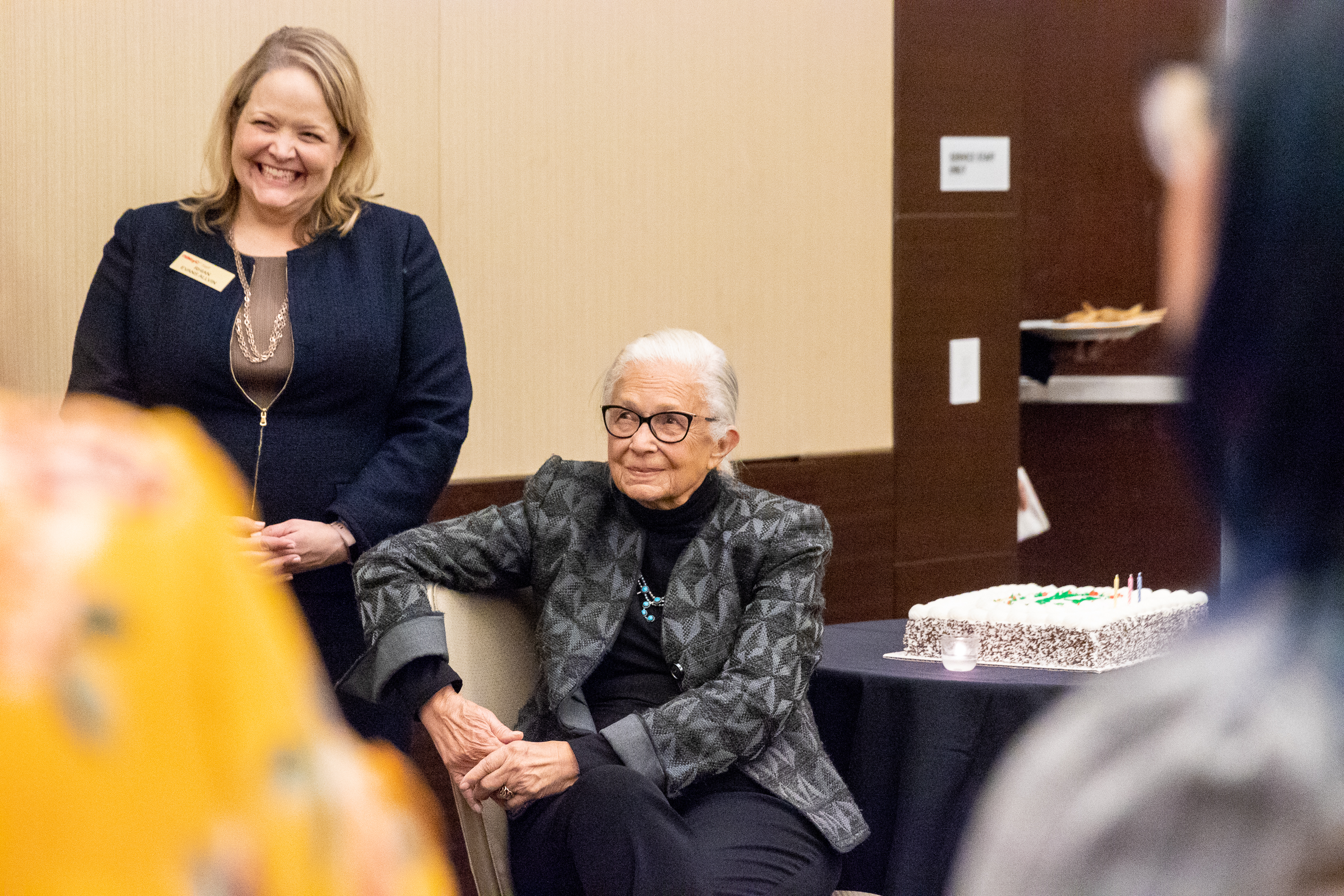
So, Barbara, I love you dearly, and on behalf of all of your students, want you to know that we will always do our best to model ourselves after you because YOU are our Queen, and we wish you a very happy 90th birthday.”
Connect and network with thousands of other ECE professionals at NAEYC’s 2019 Annual Conference, from November 20-23, in Nashville, TN. Be sure to follow our social media and website for updates on registration and housing!
Carol Brunson Day is the former President of the Governing Board at NAEYC.